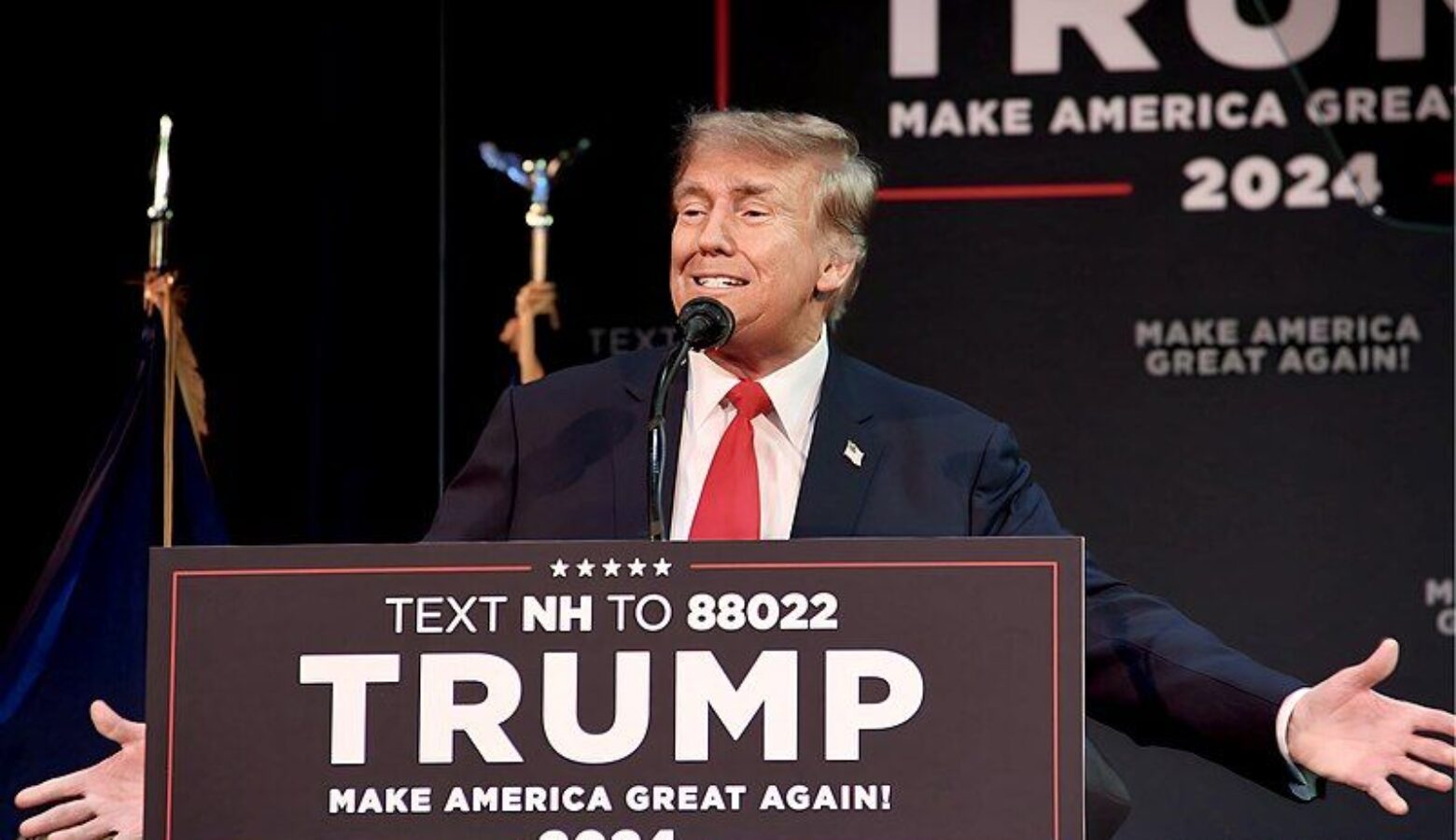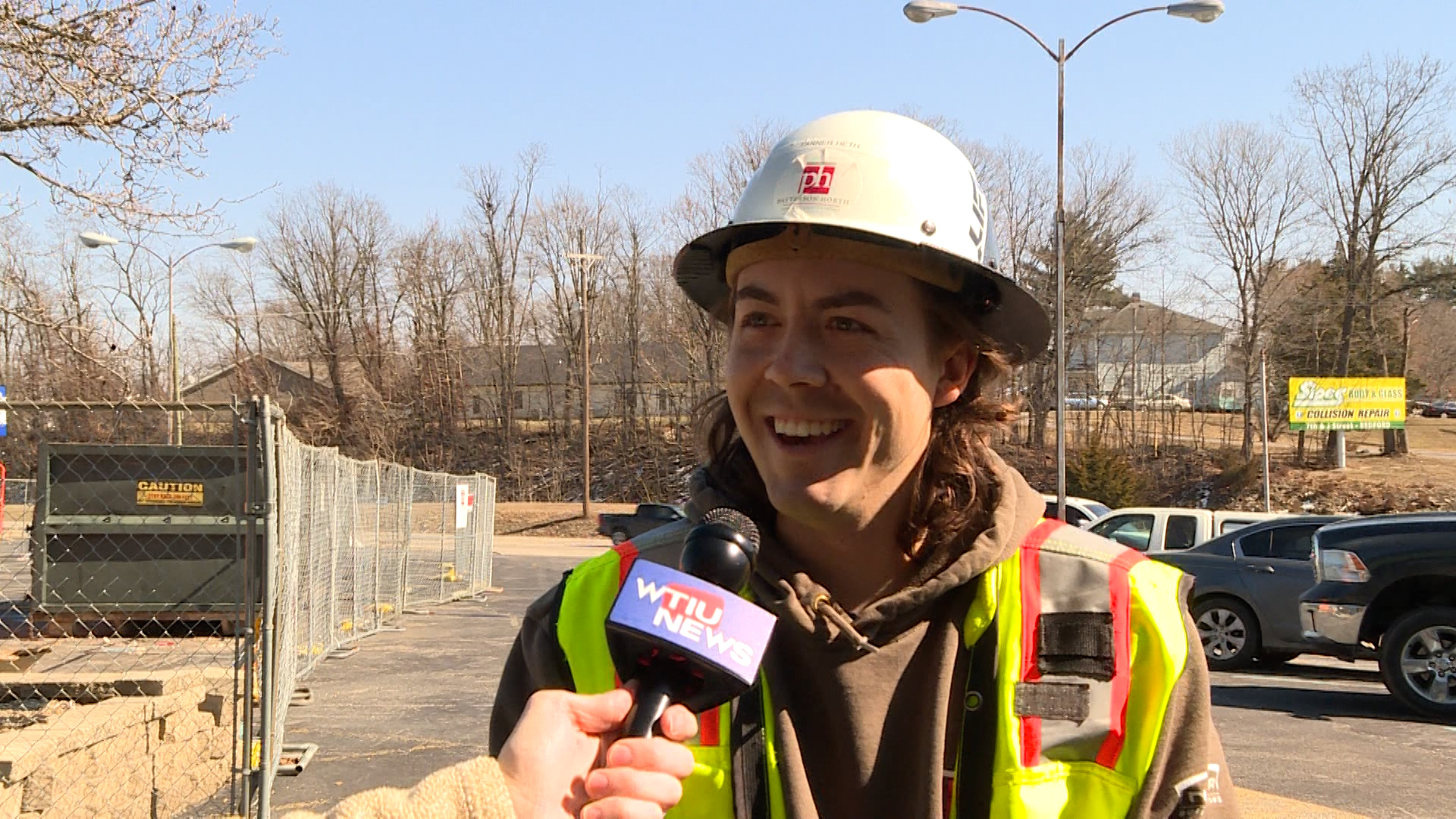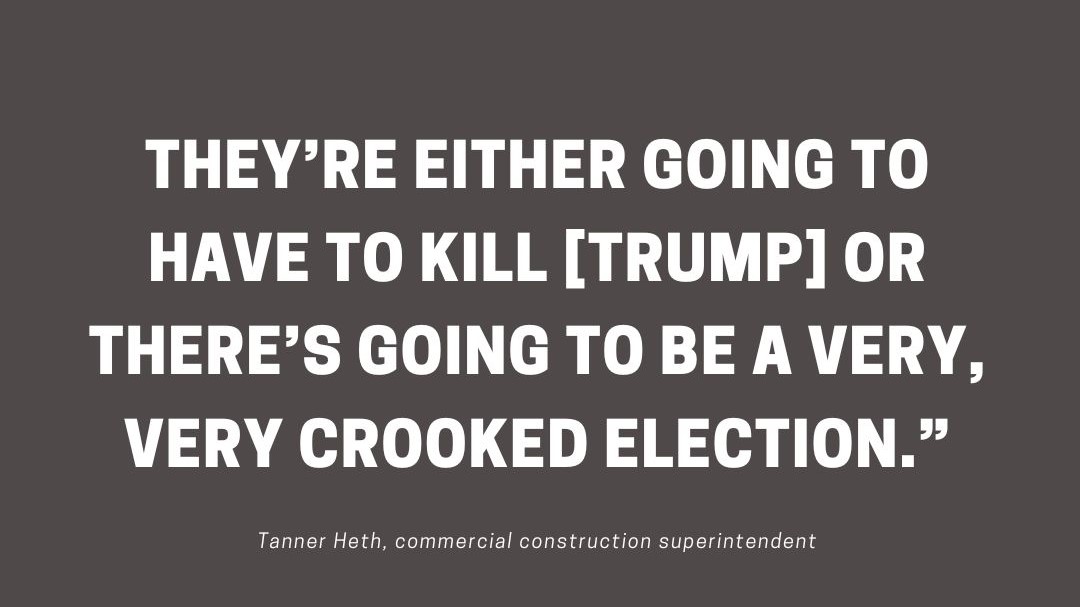Why rural voters continue to bet on Donald Trump

A lot of issues are on the minds of voters this year, including international affairs, abortion rights, climate change, and even democracy itself, the fates of which seem to hang on the outcome of the 2024 presidential election.
Tanner Heth, a commercial construction superintendent from Whitehall, said he’s concerned about inflation.
“There’s a cost-of-living issue,” he said. “And there’s no reason that we should be living paycheck to paycheck. There’s lots of people that make very, very good money, and they still live paycheck to paycheck.”
Just like any other election year, Americans will be presented with two candidates by the time November rolls around. Many rural voters have their hearts set on one former office holder.
“I’ll definitely be supporting Trump in this election,” Heth said. “It’s definitely well worth it, I supported him in 2020 when he ran. He has said some things I have not always agreed with, but you know …”

Much happened to former President Donald Trump since he and President Joe Biden last faced off in 2020. Trump lost the election, though he said he won it, and has since been faced with four criminal indictments in four different cities, totaling 91 felony counts. His popularity with rural voters persists.
Heth, for one, remains undeterred.
“This is all just a scheme to get rid of them,” he said. “And in my opinion, it only makes him stronger, it only made me want to vote for him more and more, mainly for the fact that he is going through everything. He is going through more than what your average American person has.”
Biden meanwhile has been criticized for his handling of the rise in inflation, the Israel-Hamas war and unfulfilled promises including the cancellation of student loan debt, and the codifying of Roe v. Wade.
Another issue is age; voters will likely be choosing between two candidates whose mental and physical health statuses have been heavily questioned, with the 81-year-old Biden and 77-year-old Trump being the oldest presidential nominees of all time.
Heth said its easy for voters to turn apathetic.
“A lot of people say they don’t want to vote because there’s nobody even fit to vote for which, as an American citizen, you have to vote,” he said. “You look in countries where you’re not even allowed to vote. I mean, you’ve got to stand up for your rights.”

Joe Elsener is the executive director for the Indiana Republican Party. He said that at the state level, their candidates will be running on the issues they hear about most from their constituents, both rural and urban.
“You hear a lot about inflation, you hear a lot about the price of goods being out of control,” he said. “Obviously people always care about economic opportunity, you know, ability to get jobs, economic progress, and the more and more we get out on the road the more we hear about the border. The border is not just a border state issue, it matters to all 50 states.”
At the moment, the party hasn’t thrown its support to any candidates specifically, with Elsener saying it’s up to primary voters to tell them who they want to run for the presidency.
“I’m always appreciative of the candidates that step forward and run,” he said. “Obviously President Trump has had early success in both Iowa and New Hampshire, so we’ll see how that continues. Nikki Haley is still at it.”
Even though the Republican playing field is still technically wide open, the Indiana Republican party leader said he would place his bets on Trump becoming the nominee for president.
“The momentum from Iowa and New Hampshire, it’s certainly looking like President Trump has a lot of momentum and is moving forward with that momentum, and it’s clearly resonating with voters,” he said. “So we’ll see where that ends up.”
Michael Wolf, the acting director at the Mike Downs Center for Indiana Politics at Purdue Fort Wayne, said while it may be surprising to Democratic voters, many of Trump’s most devoted fans have not had their opinions changed by the numerous court cases and indictments.
“The fact that he’s being targeted actually fits his narrative,” he said. “And so a large percentage of his base, certainly, it’s actually mobilized further because of this.”
A recent poll done by Colby College shows 61 percent of rural Trump voters believe the January 6 charges are “phony, made up charges to keep him out of office.” Ninety-two percent said a conviction would not change their opinion on the matter.
Read a full breakdown of the poll here.
That same poll and Wolf suggest the key to understanding and perhaps even shifting the rural vote comes down to realizing that the divide between rural and urban voters doesn’t only come down to their stances on the key issues in America.
It also comes down to the fact that much of rural America, as a unified identity, fears their way of life is changing, or that they have been forgotten by the current administration.
“Pundits are kind of falsely saying, well, it’s economic dislocation, or it’s culture wars, or it’s drug addiction,” Wolf said. “We’re losing out on really identifying what the divide is and what people’s real political beliefs are, that are based on identity, not necessarily, you know, one single issue.”

That’s not to say Biden hasn’t tried to uplift rural communities from economic uncertainty; the White House has announced and rolled out infrastructure programs tailored for rural areas through the USDA starting in February of 2023. But programs such as this take time, and their effects might not be felt immediately.
According to that same Colby College poll, just 23 percent of rural voters were familiar with Biden’s efforts to rebuild roads and bridges, and 41 percent reported hearing “nothing at all” about investments into broadband internet.
“Democrats need to make the argument that the rural way of life is something that America needs, that America itself is reliant on a good combination of rural urban and suburban together,” Wolf said.
Wolf believes if other candidates or parties could give stronger voice to small communities on a national scale, it could be enough to turn the tide of the election.


